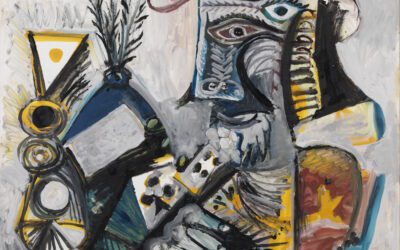[dropcap style=”font-size:100px; color:#992211;”]O[/dropcap]ddly enough, although a shared history will not hold us together, it is possible to imagine that a shared historical evolution might.
It is – thankfully – true that empire has passed, but it is also true that each of the constituent parts of the Union have gone through a transition to a condition that might be called ‘post-imperial’. Where national liberation has long been a focal point in the consciousness of former colonies, the associated process of decolonisation has had a diffuse, but equally important effect on the collective consciousness of the UK.
In the course of two generations we have gone from being a country that regretted the loss of empire – Scots included – to one that regards empire itself as regrettable. This did not happen by accident, but has been a fraught process of reflection and engagement that has had the unintended effect of attaching new meaning to British institutions, and constructing a new template of what it means to be British.
The experience of decolonisation has worked its way across the political and cultural battlefields of the UK since the 1960s. Signal events like the arrival of the Empire Windrush and the period of immigration that commenced, along with the liberalisation of society, have changed the composition and the disposition of the country. Equally important has been the liberalisation of the economy during the 1980s, in which the UK transformed itself from a decaying and redundant echo of an economy propped up by imperial trade policy, into the more flexible, open and market based economy that it is today.
Through this period, the UK has weathered the end of the Cold War and the rise of a world at once more unified and more fragmented. The Blair years perhaps overdid the ‘Cool Britannia’ theme, but there is little doubt that the London Olympics in 2012 displayed a country that has changed immeasurably from the last time London hosted them in 1948, and one with not a small spring in its step. Furthermore, it showed a new enthusiasm for ‘GB’, after many years in which England and Scotland held sporting headlines separately.
From the declinism of the 1970s, and our desperate scramble to join the EU before we sank without trace on the world stage, we are now a country that – while not without problems – is more at ease with itself. And yet this ease has not been decanted into the individual nations of the UK, but instead – as the public and international reaction to the Olympics showed – to the existing institutions and cultural forms of the UK. A Golden Jubilee reminded everyone that the Royal Family aren’t all bad, and that, when it comes to it, we’d rather have a direct descendent of Woden on the throne than a politician.
This feeling has been reinforced by the perspective brought by new arrivals, who see the UK more clearly for having known it from the outside. And what they see is not the political strife of the 1980s, nor the arrogant colonialists of the distant past. What they see is glad confident morning, and an 85 year-old Queen who pretends to hurl herself out of a helicopter for the edification of her subjects. Putin can shoot as many tigers as he likes. He’ll never beat that.
These new arrivals overwhelmingly identify with the UK, rather than with England, Scotland or Wales. Indeed, this should not be that surprising. The Union was explicitly designed as an institution that could aggregate and accommodate national differences, weaving them together in common purpose, whereas the old nations retain some hint of exclusivity about them. To be an Englishman in Scotland is to feel that in some respects your opinions are not welcome, whereas there is no contradiction between English or Scottish, and British. It is true also that the English would often conflate England and the UK in the past, the greater sensitivity to the question of identity that is a feature of a post–imperial sensibility means few do so today, and all recognise it as a mistake.
In the 70s and 80s ‘where are you from?’ was a clumsy response to a confrontation with difference, now replaced with a respect for alternative heritages, accompanied by a deeper understanding of Britain’s own complex demographic roots. A new story of migration and integration, has opened up a forgotten story of shifting international horizons and weakened firm convictions of ‘us’ and ‘them’.
[quote] although the precise question of
Scotland’s relationship with Union
is rightly a question for Scots, the nature
of that Union is a matter for all[/quote]
Arguably, one of the reasons why this transition has been relatively painless is simply because the institutions have difference designed in. For people whose families hail from Pakistan, Somalia or Poland, it is harder for them to somehow become Scottish or English, much less problem to become British. To be British is more about constitution than kin, and it is therefore already adapted for the sort of hybrid identities that are an increasing feature of our changing world.
The UK is slowly becoming a post-imperial country, one that has been forced to look hard in the mirror, and get to know itself anew. Scotland has been part of this, and has changed in much the same way. Arguably, London is more international in outlook than at any time in its history, but the same surely can be said of the rest of the country too. The problem is that Scottish Nationalism carries with it a flavour of contempt for the Union that does not really acknowledge this transformation. To nationalists, England is still stuck in the past of empire and domination, whereas Scotland is striking out for the new pastures of cosy social democracy, and the intimacies of smallness.
The case against the Union, then, becomes a case against that past of empire, of arrogance, and of the ‘butcher’s apron’ that apparently still flies over the Palace of Westminster.
But the Nationalist response to the Olympics and the Golden Jubilee showed that it is in the cultural sphere where they find it hardest to persuade Scots of the wisdom of separation. They long ago announced that the Queen would remain Head of State of an independent Scotland, and they muddled through the Olympics, churlishly coining the term Scolympian, while Scots and English together roared their lungs out for TeamGB.
More recently, as the English have slowly woken up to the possibility that Scots might indeed vote yes, some have begun to speak up. David Bowie has no association with English nationalism or empire, yet nevertheless thought it worth mentioning that he’d like them to stay. Not all English people feel the same, of course, but many do, and although the precise question of Scotland’s relationship with Union is rightly a question for Scots, the nature of that Union is a matter for all, and is a subject upon which no one is indifferent.
Furthermore, of the many cultural shifts of post-imperialism develop, so too does the institutional settlement in which they are framed. Devolution was itself a clumsy and inadequate attempt to grapple with a very pressing problem, one that has only worsened over the years. That problem is the growing detachment felt between the governing elite and the governed, but it is felt more widely than simply in Scotland or Wales. The campaign for further devolution is not opposed in England, indeed, the direction of policy is towards greater localisation across the board.
Nationalism may have given focus to this particular tension in Scotland, but Scots are not alone in feeling it. In this sense, Scotland has already shaped the future of the Union in a way that will have only greater and greater appeal. A remaining hurdle is simply how to balance the constituent parts of the Union more evenly, but if a constitutional settlement can be designed around a regionally differentiated England, then Scotland will find itself among English regional friends, rather than up against a monolithic English giant. Devolution for all, rather than independence for some, as it were.
Furthermore, these debates and evolutions take place in a wider European context in which the centralising tendency is also being placed in question. Which is not to suggest that nationalism has no place in the discussion, but it is – perhaps – to suggest that nationalism is as much a localised form of widespread discontent, than a specific hostility to the Union per se.
Photos:
Edinburgh by Freedigitalphotos.net/Vichaya Kiatying-Angsulee
Ballot by Freedigitalhotos.net/Jeroen van Oostrom
Douglas Bulloch was born in Canada, grew up in the UK and lives in Shanghai. He spent many years working on the financial reporting side of the oil business before returning to academia to write a political-theory heavy PhD in International Relations. His two young children leave him little time to think, but give him many reasons to





















